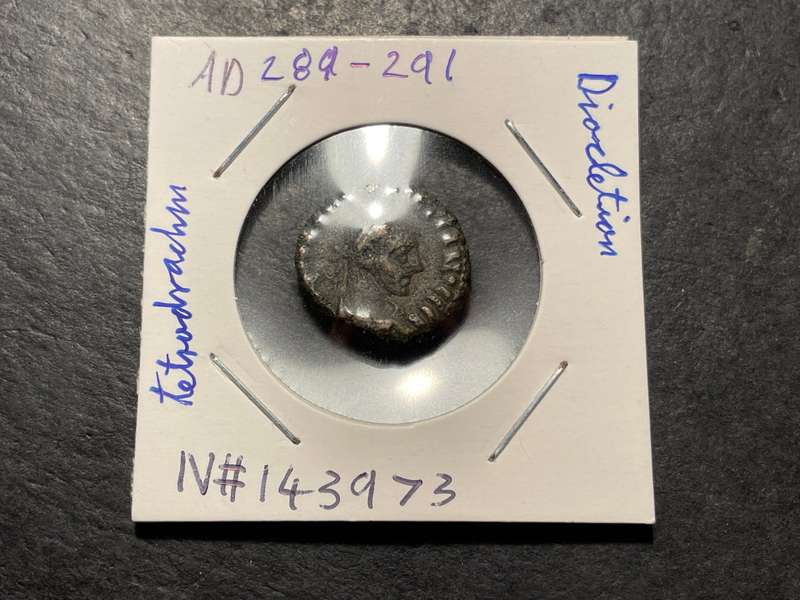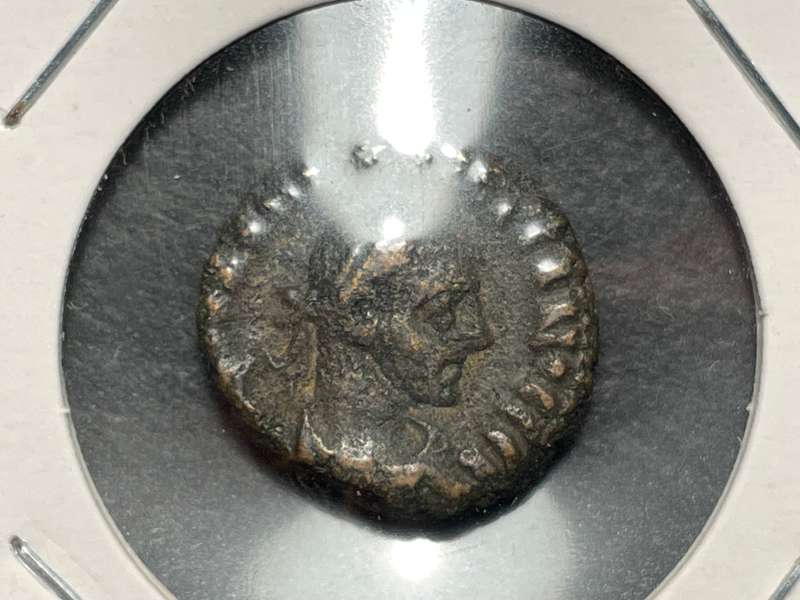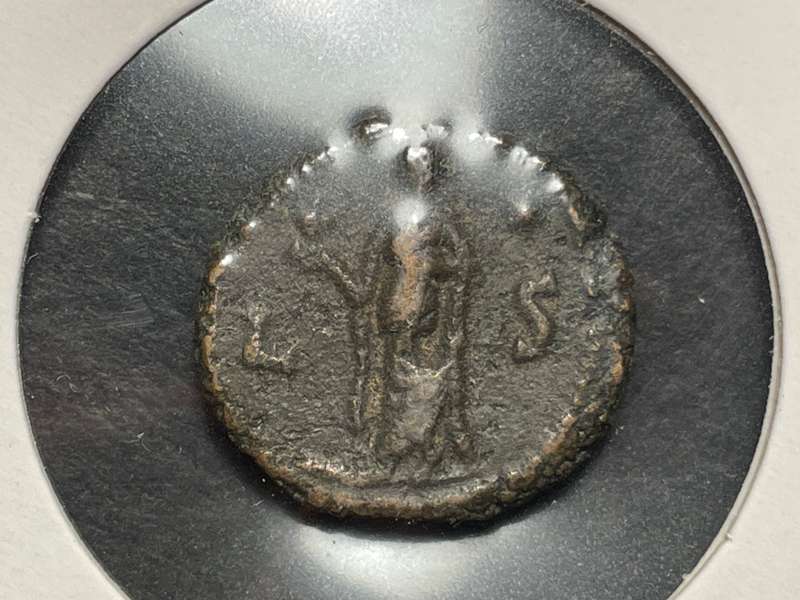





Ancient Roman Empire bronze Tetradrachm - Emperor Diocletian, minted between 289 to 291 AD
Check my rate
| Main centres: | 1-3 business days |
| Regional areas: | 3-4 business days |
| Remote areas: | 3-5 business days |






| Main centres: | 1-3 business days |
| Regional areas: | 3-4 business days |
| Remote areas: | 3-5 business days |
Diocletian, nicknamed Jovius, was Roman emperor from 284 until his abdication in 305. He was born Diocles to a family of low status in the Roman province of Dalmatia. Diocles rose through the ranks of the military early in his career, eventually becoming a cavalry commander for the army of Emperor Carus. After the deaths of Carus and his son Numerian on a campaign in Persia, Diocles was proclaimed emperor by the troops, taking the name Diocletianus. The title was also claimed by Carus's surviving son, Carinus, but Diocletian defeated him in the Battle of the Margus.
Diocletian's reign stabilized the empire and ended the Crisis of the Third Century. He initiated the process of the Roman Empire split and appointed fellow officer Maximian as Augustus, co-emperor, in 286. Diocletian reigned in the Eastern Empire, and Maximian reigned in the Western Empire. Diocletian delegated further on 1 March 293, appointing Galerius and Constantius as junior colleagues (each with the title Caesar), under himself and Maximian respectively. Under the Tetrarchy, or "rule of four", each tetrarch would rule over a quarter-division of the empire. Diocletian secured the empire's borders and purged it of all threats to his power. He defeated the Sarmatians and Carpi during several campaigns between 285 and 299, the Alamanni in 288, and usurpers in Egypt between 297 and 298. Galerius, aided by Diocletian, campaigned successfully against Persia, the empire's traditional enemy, and in 299, he sacked their capital, Ctesiphon. Diocletian led the subsequent negotiations and achieved a lasting and favorable peace.
Diocletian separated and enlarged the empire's civil and military services and reorganized the empire's provincial divisions, establishing the largest and most bureaucratic government in the history of the empire. He established new administrative centers in Nicomedia, Mediolanum, Sirmium, and Trevorum, closer to the empire's frontiers than the traditional capital at Rome. Building on third-century trends towards absolutism, he styled himself an autocrat, elevating himself above the empire's masses with imposing forms of court ceremonies and architecture. Bureaucratic and military growth, constant campaigning, and construction projects increased the state's expenditures and necessitated a comprehensive tax reform. From at least 297 on, imperial taxation was standardized, made more equitable, and levied at generally higher rates.
Not all of Diocletian's plans were successful: the Edict on Maximum Prices (301), his attempt to curb inflation via price controls, was counterproductive and quickly ignored. Although effective while he ruled, Diocletian's tetrarchic system collapsed after his abdication under the competing dynastic claims of Maxentius and Constantine, sons of Maximian and Constantius respectively. The Diocletianic Persecution (303312), the empire's last, largest, and bloodiest official persecution of Christianity, failed to eliminate Christianity in the empire. After 324, Christianity became the empire's preferred religion under Constantine. Despite these failures and challenges, Diocletian's reforms fundamentally changed the structure of the Roman imperial government and helped stabilize the empire economically and militarily, enabling the empire to remain essentially intact for another 150 years despite being near the brink of collapse in Diocletian's youth. Weakened by illness, Diocletian left the imperial office on 1 May 305, becoming the first Roman emperor to abdicate the position voluntarily. He lived out his retirement in his palace on the Dalmatian coast, tending to his vegetable gardens. His palace eventually became the core of the modern-day city of Split in Croatia.
Source: Wikipedia


